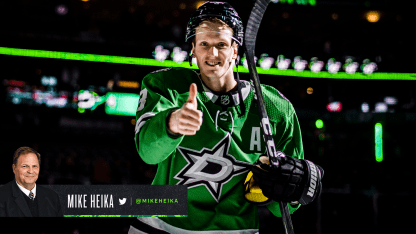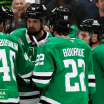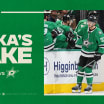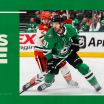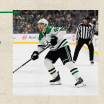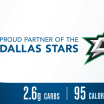After leading the Stars in time on ice the three previous seasons, Klingberg slipped to third on the team in the playoffs behind Esa Lindell and Miro Heiskanen.
Klingberg's 24:38 in the postseason was 2:20 behind Lindell's 26:58, because Lindell averaged 4:30 in penalty-kill time and Klingberg averaged one second per playoff game on the penalty kill. Klingberg's regular season PK time was 45 seconds per game, down from 1:07 under the previous coaching staff.
There is a chance that Dallas looks to keep Klingberg off the kill going forward in order to keep him fresh and allow him to help the power play more. In addition, there is a chance the coaches want more from Heiskanen, who averaged 23:07 as a rookie in the regular season. A lot will depend on how the coaches want to set up the defensive pairings and whether or not the quartet of Stephen Johns, Andrej Sekera, Jamie Oleksiak and Roman Polak remain healthy.
There's a lot of moving parts there that will determine time on ice, but Klingberg could see his minutes diminish a bit.
Klingberg remains one of the great bargains in the NHL, with a $4.25 million cap hit (ranking 72nd among NHL defensemen). He will see his actual salary bump up to $5 million next season, but he's still a steal at that price.
Critics continue to wish for more physical play from Klingberg, but an interesting comparison to consider is the fact that in 64 games, Klingberg had 42 hits, while Heiskanen had 34 hits in 82 games. Likewise, Klingberg had 77 blocked shots in 64 games, while Heiskanen had 71 in 82 games.
In other words, appreciate not what each doesn't do, but rather what each does -- because it can be pretty special.
This story was not subject to the approval of the National Hockey League or Dallas Stars Hockey Club.
Mike Heika is a Senior Staff Writer for DallasStars.com and has covered the Stars since 1994. Follow him on Twitter @MikeHeika.
Read more: John Klingberg](https://www.nhl.com/stars/search#q=John%20Klingberg), Dallas Stars
